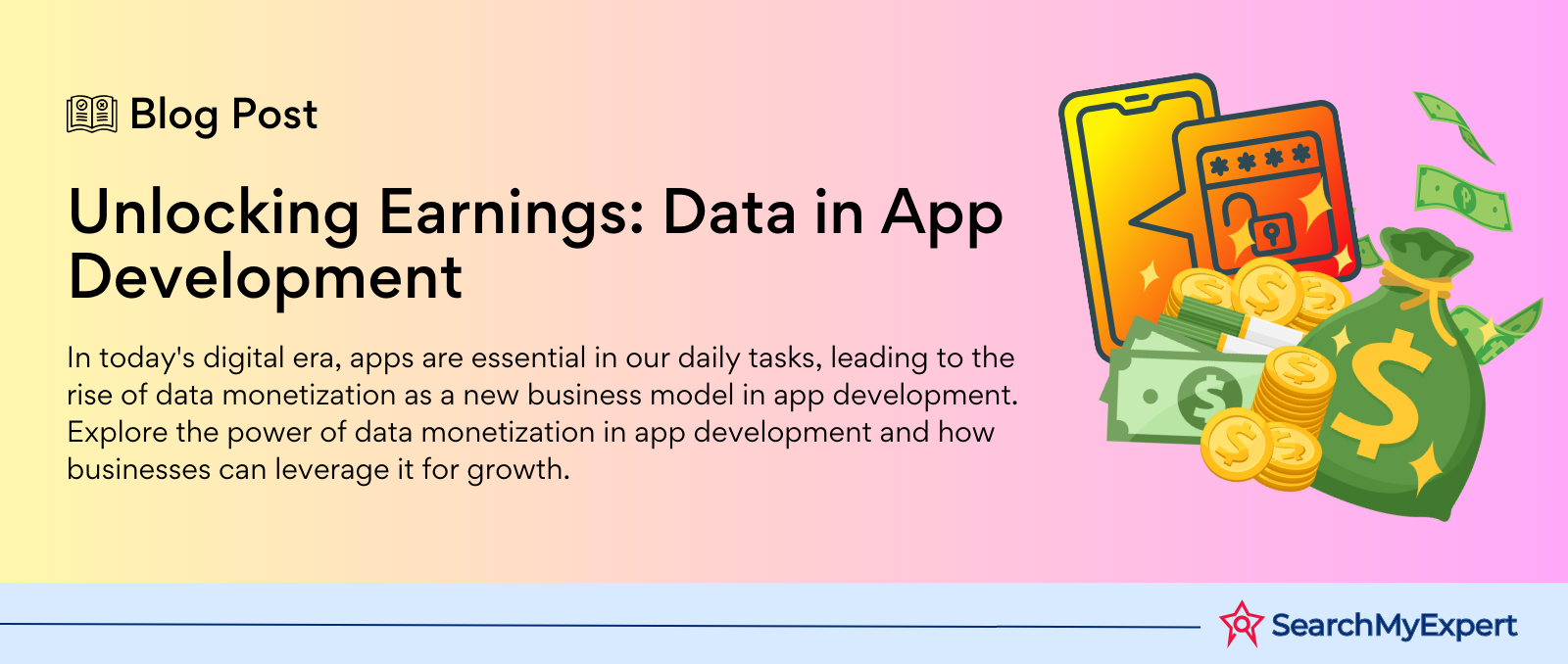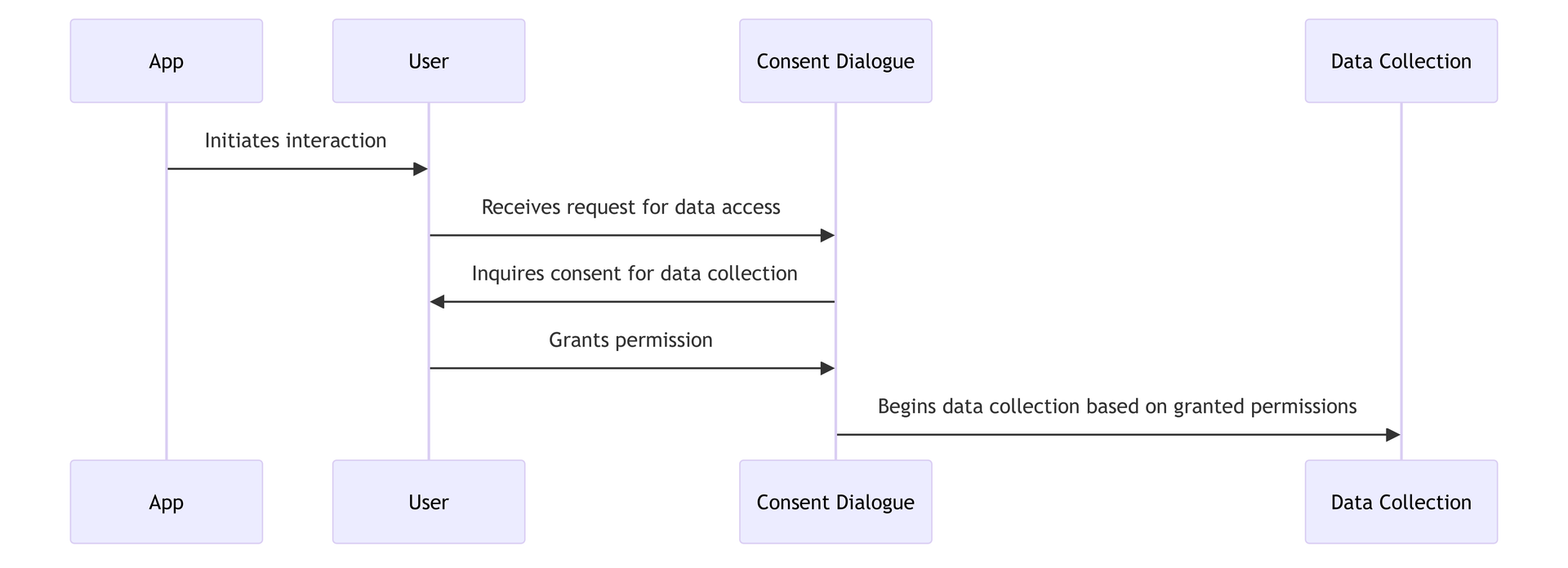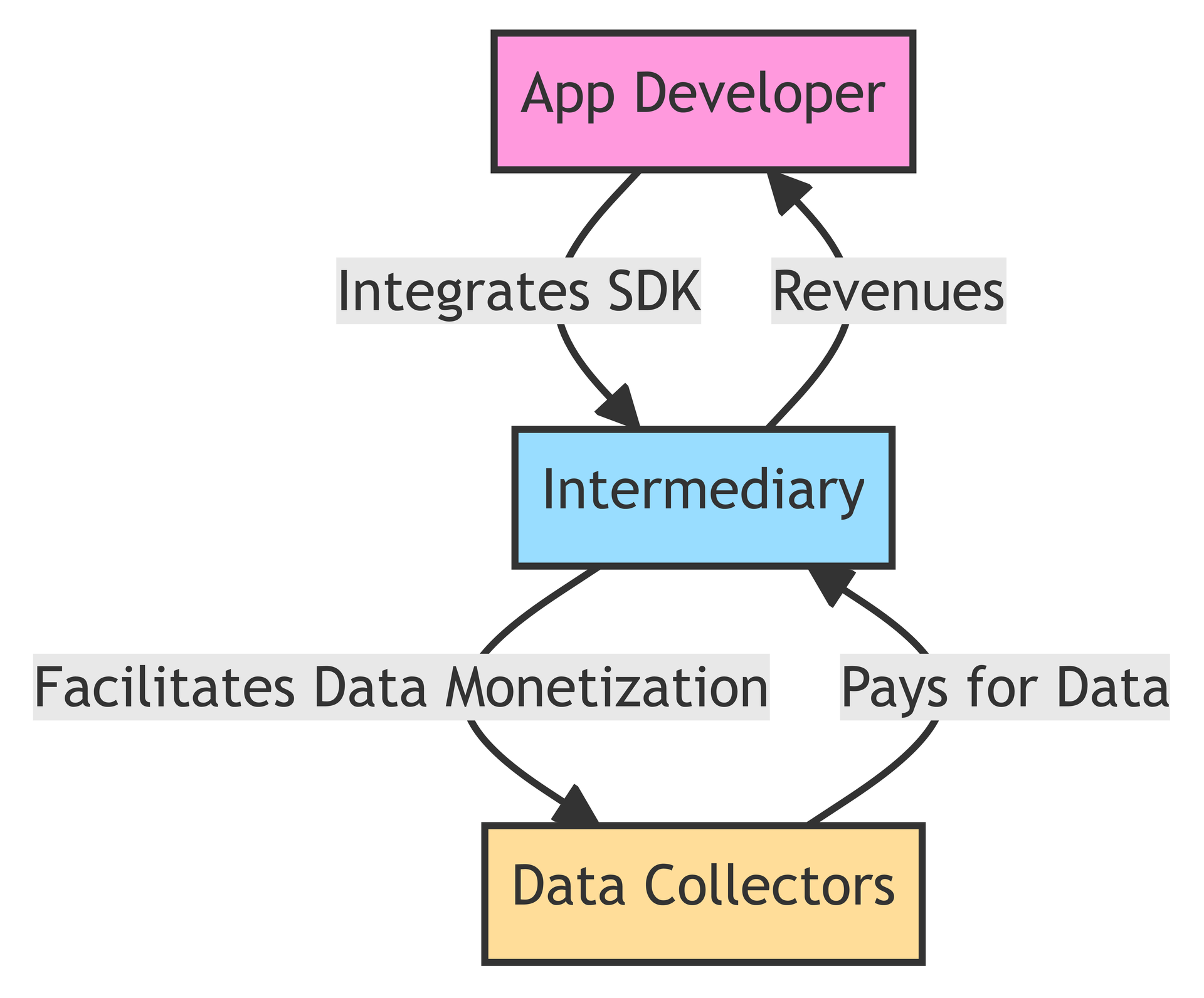Unveiling the Power of Data Monetization in App Development

In the hyper-competitive realm of mobile applications, standing out requires more than just a user-centric design or a groundbreaking utility. It demands an innovative approach to creating revenue streams. One such underexplored territory is data monetization, a strategy that has undergone substantial evolution since its inception. As we venture into 2023, understanding the intricate layers of this trend is not just advisable; it's indispensable for app developers aiming for sustainability and growth.
Understanding Data Monetization: Beyond the Basics
Data monetization refers to the process of converting user data into tangible economic benefits. While the concept might seem straightforward, the actual dynamics involve meticulous handling of data, ensuring user privacy, and navigating through various regulatory norms.
The paramount aspect here is that we're discussing non-personal, anonymous data, which is a goldmine for businesses, advertisers, and researchers. This data encompasses diverse user metrics, providing invaluable insights into user behavior and preferences without breaching individual privacy.
The Lifecycle of User Data in Monetization
Envisioning the journey from data collection to monetization helps in understanding the mechanics of this process. Here's how it typically unfolds:
- Collection: With user consent, the app gathers non-personal data during interaction sessions.
- Aggregation: Data is compiled, often needing an intermediary for efficiency and compliance.
- Analysis: Professionals or automated systems analyze the data, translating raw numbers into meaningful insights.
- Monetization: Insights are then either used to enhance the business’s own strategies or sold to interested parties.
Implementing this strategy requires a comprehensive understanding of the data lifecycle and a commitment to ethical standards, primarily concerning user consent and privacy.
Essential Components for Effective Data Monetization
Implementing data monetization isn't merely about inserting an SDK into your app's codebase. It's a systematic approach involving several crucial stages.
User Consent: The Ethical Imperative
In an age where data privacy is a significant concern, obtaining user consent isn't just a legal requirement; it's a step towards building trust. It involves clear communication about what data you're collecting, how it's going to be used, and providing users full autonomy to opt-in.
Here is the diagram visually represents the emphasis on data privacy concerns

Quality and Relevance of Data: The Value Proposition
High-quality, relevant data is the cornerstone of this monetization strategy. It's imperative to gather data that offers genuine insights, which is valuable to potential buyers. This involves a strategic selection of data points being collected, focusing on relevance, accuracy, and depth of the insights they can provide.
Data Partnerships: Expanding the Horizon
The role of intermediaries or data partners is often pivotal. These entities have pre-established connections with various data collectors and buyers, adding value to your data and providing a seamless route to monetization. Partnering with a reliable intermediary can expand your reach to potential data customers you wouldn't have access to otherwise.
Strategic Advantages: Why Consider Data Monetization?
Data monetization, when executed effectively, offers a plethora of benefits, making it an attractive strategy for app developers.
- Consistent Revenue Stream: It allows you to generate revenue continually without relying on one-time transactions.
- Enhanced User Experience: Unlike intrusive advertising models, it doesn’t interfere with user interaction, maintaining the app’s user experience.
- Resource Optimization: It requires minimal operational oversight once implemented, unlike other revenue models that might need constant tweaking and management.
- Universal Applicability: Its compatibility with various app categories amplifies its attractiveness, not limiting it to certain niches or genres.
Understanding Data Collection Parameters in App Monetization
Collecting user data involves several parameters that companies find extremely valuable. These include, but are not limited to:
- Device Type: Understanding the range of devices used to access an app can help tailor services effectively.
- Operating System Version: This helps in optimizing the app’s performance for different OS versions, ensuring compatibility and smooth functioning.
- Screen Size: Apps can be optimized for a better user experience by understanding the various screen sizes that the app is viewed on.
- Geographical Location: Knowing the user's location can help in providing geo-specific features, content, or advertisements.
It's crucial to remember that while these data types are non-personal, user privacy should never be compromised. Transparency about data usage with the users builds trust and is also a legal requirement in many jurisdictions.
Why Intermediaries Play a Pivotal Role in Data Monetization
Intermediaries act as the bridge between app developers and data collectors, simplifying the complexities involved in the data monetization process. Their role is multifaceted and includes:
- Facilitating Connections: They link developers with relevant data collectors, eliminating the need for developers to seek out partnerships independently.
- Simplifying Integration: Developers need to integrate just one comprehensive SDK, saving time and technical resources that multiple integrations would require.
- Optimizing Revenue Streams: By having multiple data collectors in one network, intermediaries help in diversifying and potentially maximizing the revenue sources for developers.
Given these advantages, choosing a robust intermediary partner is essential for a streamlined, efficient, and profitable data monetization process.
Here is the Diagram shows The role of intermediaries in facilitating and streamlining the process of app data monetization.

Navigating User Consent in the Age of Privacy
User consent is not just a legal formality; it’s a critical component of user trust. It is important to:
- Inform Users Clearly: Clarity and transparency about what data is being collected and the purpose of this collection.
- Obtain Explicit Consent: Users should give informed consent via clear affirmative action.
- Respect User Preferences: Including easy options for users to opt-out respects user autonomy and privacy preferences.
Implementing a straightforward and transparent approach to user consent helps maintain user trust and compliance with international data protection regulations, such as the GDPR.
The Invisible Efficiency of Data Monetization
One of the appealing aspects of data monetization is its non-intrusive nature:
- Seamless User Experience: It operates in the background, ensuring the user's in-app experience is uninterrupted.
- No Additional Ad Clutter: Keeps the app interface clean, unlike traditional in-app advertising.
- Resource Efficiency: It uses minimal device resources, ensuring that the app’s performance is uncompromised.
By being a 'silent operator,' data monetization becomes an attractive option, especially for apps that prioritize user experience and performance.
Future-Proofing Your Revenue with Data Monetization
As digital landscapes evolve, placing all bets on one revenue strategy is precarious. Data monetization offers a sustainable avenue because:
- Diversification: It’s an excellent supplement to other revenue streams, reducing dependency on any single source.
- User Growth Relevance: As your user base grows, so does the potential for revenue.
- Market Value: In a data-driven economy, the value of real-time user data is ever-increasing.
Embracing data monetization is more than a trend; it’s preparing for a future where data is the currency, and informed insights are the merchandise.
Conclusion: Adapting to a Data-Driven Ecosystem
The shift towards a data-centric approach in app monetization is not just a phase but a reflection of the broader digital ecosystem's evolution. By understanding the intricacies of data monetization, developers can not only create additional revenue streams but also gain valuable insights into user behavior, enhancing app services and user experience. As we forge into 2023, adapting to data-driven strategies isn’t just advisable; it’s essential for sustainability and growth in the ever-competitive app market.
Stay informed with the latest insights in app development and monetization strategies by subscribing to our newsletter. Leverage the power of data with informed decisions and thrive in the app economy.
Achieve app excellence with these top-tier
App Development Companies.
share this page if you liked it 😊
Other Related Blogs

Mastering Docker for App Development: A Comprehensive Guide to Benefits, Use-Cases, and Alternatives
STAY UP TO DATE
GET PATH'S LATEST
Receive bi-weekly updates from the SME, and get a heads up on upcoming events.
Contact Us











